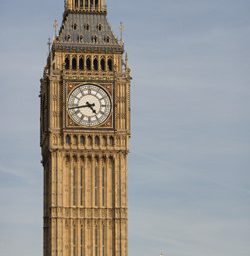Is Europe Turning Right?
Parties described as "far right" or "extreme right" have done very well in Europe's most recent elections.
Politics does not translate well. What’s thought of as “left-wing” in one country could be “right-wing” in another. Ideas thought of as “centrist” in one country may be completely outside mainstream politics in another. Britain’s UKIP, sometimes described as “far right”, supports Britain’s National Health Service, a policy which we are assured in the United States would relegate it to the left fringe. What’s a necessity in one country is beyond the pale in another. In many European countries “far right” used to mean “royalist” and in some for all I know still does.
Add that the very terminology of “left” or “right” we use to describe political orientation derives from the seating arrangements of the French États généraux of 1789 and it’s clear that our language for describing politics is hopelessly inadequate.
Still, something seems to be going on in Europe:
A German political party that has been compared to the Nazis will enter the European Parliament for the first time, in an election marked by a surge in right-wing parties that are either sceptical or hostile to the EU.
The NPD has been campaigning on a platform of stopping immigration and been called racist and anti-semitic.
They have fought under the banner of slogans like “Money for granny instead of Sinti and Roma” and “the boat is full”, given interviews insisting Europe is “a continent of white people” and, as pictured below, have marched with banners proclaiming the Nazi ideology of “National Socialism”.
Germany’s NPD isn’t alone. Last week Britain’s UKIP, the UK Independence Party, won enough victories in local elections to place it on the British political map:
The UK Independence Party is a truly national force and has “momentum” behind it, Nigel Farage has said after its victory in the European elections.
Hailing a “breakthrough” in Scotland and a strong showing in Wales, he said UKIP would target its first Westminster seat in next week’s Newark by-election.
Lib Dem leader Nick Clegg has said he will not resign after his party lost all but one of its 12 MEPs.
He said he was not going to “walk away” from the job despite the poor results.
Mr Farage has been celebrating his party’s triumph in the European polls, the first time a party other than the Conservatives or Labour has won a national election for 100 years.
UKIP won 27.5% of the vote and had 24 MEPs elected. Labour, on 25.4%, has narrowly beat the Tories into third place while the Lib Dems lost all but one of their seats and came sixth behind the Greens.
and France’s Front National, captained by the charismatic Marine Le Pen, has scored an historic victory:
It was, as even their avowed opponents agreed, an historic victory. Or as French foreign minister Laurent Fabius succinctly put it, there was “one winner and a lot of losers”.
From the beginning of the European election campaign weeks ago Marine Le Pen was insistent that Sunday evening would finally see the Front National emerge as “France’s number one party”.
Election pundits scorned her pretensions; the opinion polls confirmed them.
As the election results were predicted – and later confirmed – on Sunday evening, there were cheers followed by an enthusiastic but not particularly in-tune rendition of La Marseillaise from the party faithful gathered at the FN headquarters in the Paris suburb of Nanterre.
The far-right FN had done better than even it had probably expected or hoped, polling a historic 25% of votes in the European elections and becoming France’s top party on the European stage.
Golden Dawn in Greece. Lega Nord in Italy. The list goes on.
Some of these parties are genuinely right-wing and I think that should give us some concern. Some are nativist. IMO the connecting thread among these parties is that they’re anti-elitist or populist parties whose fortunes have risen in the aftermath of the global financial crisis and, even more significantly, the policy responses to the global financial crisis which have been overwhelming elitist and top-down. That the benefits of those policies have largely accrued to the elite and those at the top should surprise no one.
Whatever the nature of these upstart policies, the wave on these upstart parties does not seem to have crested yet and we can only guess at the implications of what happens when it does.







I get the impression that they are more nativist than anything. Seems like real push back on the immigration policies resulting from the EU. While I am sure this has been worsened secondary to the financial crisis, I think this has always been present. I fully expect that whatever “populist” residual anger there may be over the banks being bailed out, we can fully expect that these movements will fully support policies to keep the banks, and more importantly the people running them, intact.
Steve
The EU has proved that having an open door immigration between countries that are at different stages of economic development and strength of the social safety net is a sure recipe for creating resentment and backlash.
The economic argument would have legs if the phenomenon was limited to wealthy Europe but growing nativism is extant throughout Europe (and the rest of the world) and seems the far more likely source of discord.
Long piece from the Nation on Hungery’s transition as well. Done a little differently, but the bottom line is there has to be strong support in a significant portion of the people for them to get away with it.
http://www.thenation.com/article/179710/hungary-and-end-politics?page=full#
Here’s a snip:
A small correction: The NPD in Germany did not “surge”. They received 1% of the total vote.
The only reason they got a single seat in the EU parliament is that the German Supreme Court recently invalidated the 3%-barrier that previously kept small splinter parties out. Ironically on the grounds that the EU parliament now has to be considered stable enough that it is no longer needed to ensure stability :D.
I think that the real problem is not immigration nor economy, but the EU. Nigel Farage usual answer about immigration is that Immigration Laws should be decided in the UK, not in Brussels, and I think that resonates with the public.
Except that far left Syriza actually won in Greece and the left won in Spain but yeah if you only look at elections that the right wing won then the right did well.
What happened in Europe is not what you think. This was more a victory of the radicals over the establishment.
A major economic collapse happens. The European governments and central banks implement austerity measures in response.The economies further contract in response to these policies. All over Europe right wing parties rise that are often anti-groups stigmatized as foreign.Sound familiar?
This was exactly the pattern in the 1930s. One particular country in which happened was of course Germany. The German government instituted strict austerity policies in the early 1930s in response to the Great Depression. This caused intense social strife, leading to the startling rise of a formerly insignificant right wing party led by you know who.Similar movements rose in Spain, Portugal, and Greece , joining the original Fascist movement in Italy.
One of the results of the right wing’s misguided economic policy is that they fuel these right wing extremist movements. They did in the 1930s and they are doing it again today. Wonder when will we ever learn?
@jib:
1-) The European Parliament is a bizarre institution, that no one knows precisely what they do, and the use o Proportional gives power to smaller(and fringe) parties. It´s a very low turnout election.
2-) The problem is that UKIP and FN also did extremely well on local elections this year, and UKIP is effectively pressuring the Tories on Europe.
3-) France and UK are far more relevant than Greece and even Spain.
The main reason “extermist” parties (left or right) are getting votes that there is a solid block of “Yes to Europa” parties occupying the center. There are zero eurosceptic parties in the mainstream in any country of the EU. So if you don’t want more of your political rights get moved to the EU you have to vote UKIP, FN, AfD etc. Of course, the safe part is with the lack of power of the European parliament these kind of protest votes don’t affect your day-to-day life.
@stonetools:
I dunno. Seems to me there is a bit of “We’ve tried brands X and Y, let’s give brand Z a shot” in this. People tend to vote for prosperity and security much more than they tend to vote for ideological points, I’m sad to say.
That said, if brand Z delivers, their ideology tends to be more broadly embraced. It’s something that bears watching.
The answer is “yes”. They tried the left, and it proved, as socialism always does, to be unsustainable, inequitable, and far from the solution.
Meanwhile, one wonders where all the admiration for Europe has gone on the left. While we here in the states dabble with socialism, the Euopians have already been there and found it wanting. Some of us here, haven’t caught on, yet.